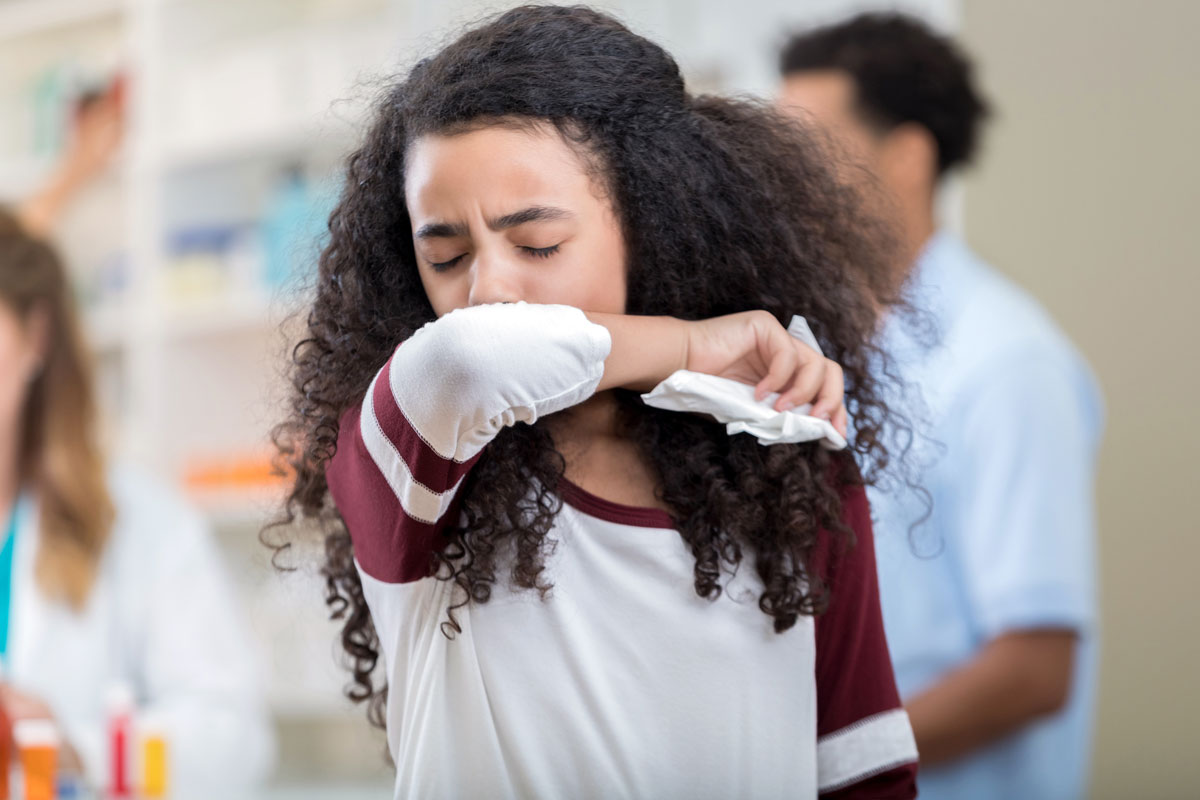Quick Summary
Seek urgent or emergency medical evaluation if vomiting is accompanied by:
- Blood in vomit
- Green or greenish vomit
- Brown vomit
- Severe abdominal pain or cramping
- Severe swelling of the abdomen
- Severe headache
- Stiff neck
- Vomiting after a head injury
- In babies: a sunken soft spot (fontanelle)
- In infants: very forceful (projectile) vomiting
What Vomiting Means
Vomiting means a child is throwing up the contents of the stomach. It can occur along with symptoms such as stomach pain, nausea, or diarrhea.
Vomiting in children is common, and many cases are not serious. Some children can be cared for at home, but certain symptoms—especially signs of dehydration or specific red-flag features—require prompt medical evaluation.
Common Causes of Vomiting in Children
Authoritative pediatric sources identify several common causes, including:
- Viral gastroenteritis (stomach bug)
- Food poisoning
- Motion sickness
When Vomiting Can Often Be Managed at Home
Some children with mild vomiting can be treated at home.
Home care commonly includes:
- Rest
- Small, frequent sips of fluids, including oral rehydration solutions when appropriate
- Avoiding forced eating while vomiting is active
- Gradually returning to bland, plain foods after vomiting stops
Signs of Dehydration to Watch For
Dehydration is a major concern when children vomit, especially younger children.
Evidence-supported dehydration signs include:
- Dry mouth (including very dry mouth or tongue)
- Reduced urination or fewer wet diapers
- Crying without tears
- Sunken-looking eyes or generally sunken appearance
- Unusual sleepiness or lethargy
- Dizziness
When Vomiting Becomes an Emergency
Seek urgent medical care when vomiting is accompanied by:
- Blood in vomit
- Green or greenish material
- Brown vomit
- Severe abdominal pain or cramping
- Severe swelling of the abdomen
- Severe headache
- Stiff neck
- Vomiting after a head injury
Vomiting and Fever Together
Fever can be the body’s normal response to infection.
Evidence supports that:
- High fever combined with vomiting warrants medical evaluation
- Infants with fever should be evaluated promptly
Age-Specific Considerations
Infants (0–12 months)
Infants have a higher risk of dehydration and certain serious conditions.
Evidence-supported urgent concerns include:
- Very forceful (projectile) vomiting
- Dehydration signs (especially reduced urination or wet diapers)
- A sunken soft spot (fontanelle)
Toddlers and Older Children
- Viral vomiting is common in these age groups
- Severe abdominal pain, severe headache, or other red-flag symptoms should not be ignored
- Persistent vomiting beyond age-based thresholds warrants medical advice
When to See a Doctor
Contact a healthcare professional when:
- Vomiting lasts beyond age-based time thresholds described in pediatric guidance
- Signs of dehydration are present
- Vomiting begins after starting a new medication
Frequently Asked Questions
How long is too long for a child to keep vomiting?
Pediatric guidance provides age-based thresholds for when vomiting duration warrants calling a doctor. In some contexts, 24 hours is a significant escalation point.
What color vomit is dangerous?
Vomiting that contains blood or appears green or greenish is treated as urgent. Brown vomit is also flagged as urgent in the evidence set.
Can vomiting without fever still be serious?
Yes. Some emergency triggers do not require fever, including blood in vomit, green or greenish vomit, severe abdominal pain, severe headache, or vomiting after head injury.
What should I do immediately after my child vomits?
Evidence-supported care includes letting the stomach rest briefly, then offering small, frequent sips of clear fluids or an oral rehydration solution, and avoiding forced food until vomiting stops.
Should I worry if my child vomits once?
There is no high-quality evidence supporting a general rule for this scenario.
When should I take my child to the ER for vomiting?
Urgent evaluation is supported when vomiting includes blood, green or greenish material, brown vomit, severe abdominal pain, severe abdominal swelling, severe headache, stiff neck, vomiting after head injury, or—in babies—a sunken soft spot or projectile vomiting.
When should I go to urgent care instead of the ER?
There is no high-quality evidence supporting a clear urgent-care versus ER distinction for vomiting in the source set used here.
What causes coffee-ground-looking vomit?
There is no high-quality evidence supporting an explanation for this question in the verified source set.
Can teething, ear infections, pneumonia, or medications cause vomiting?
There is no high-quality evidence supporting these claims in the verified source set used for this article.
Should I throw up if I ate raw chicken?
There is no high-quality evidence supporting this.
APA Reference List
American Academy of Pediatrics. (2024, December 29). Causes of vomiting in infants & children. HealthyChildren.org. https://www.healthychildren.org/English/health-issues/conditions/abdominal/Pages/Infant-Vomiting.aspx
American Academy of Pediatrics. (2025, February 24). Treating vomiting: What to do when your child is throwing up. HealthyChildren.org. https://www.healthychildren.org/English/health-issues/conditions/abdominal/Pages/treating-vomiting.aspx
Children’s Hospital Colorado. (n.d.). Vomiting (0–12 months). https://www.childrenscolorado.org/conditions-and-advice/conditions-and-symptoms/symptoms/vomiting-0-12-months/
Children’s Hospital Colorado. (2022, February 8). Fontanelle closures. https://www.childrenscolorado.org/just-ask-childrens/articles/fontanelles/
Healthdirect Australia. (2024, February). Vomiting in children. https://www.healthdirect.gov.au/vomiting-in-children
Mayo Clinic Staff. (2025, May 2). Dehydration: Symptoms & causes. Mayo Clinic. https://www.mayoclinic.org/diseases-conditions/dehydration/symptoms-causes/syc-20354086
MedlinePlus. (2024, September 17). Nausea and vomiting. National Library of Medicine. https://medlineplus.gov/nauseaandvomiting.html
Nationwide Children’s Hospital. (n.d.). Vomiting: Treatment and hydration. https://www.nationwidechildrens.org/conditions/vomiting
Royal Children’s Hospital Melbourne. (n.d.). Clinical practice guidelines: Vomiting. https://www.rch.org.au/clinicalguide/guideline_index/Vomiting/
Seattle Children’s Hospital. (n.d.). Vomiting without diarrhea. https://www.seattlechildrens.org/conditions/a-z/vomiting-without-diarrhea/
Sydney Children’s Hospitals Network. (2024, February 8). Bilious vomiting factsheet. NSW Government. https://www.schn.health.nsw.gov.au/bilious-vomiting-factsheet
UPMC HealthBeat. (2024, January 17). When to take your child to the ER for vomiting and fever. https://share.upmc.com/2024/01/vomiting-and-fever-in-children/

